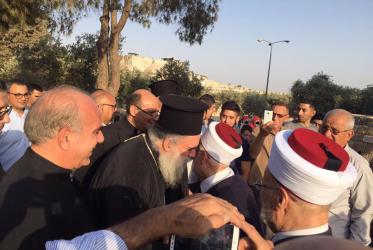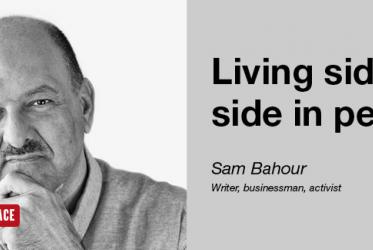Displaying 21 - 40 of 100
Freedom of religion rooted in justice
06 March 2020
Human fraternity is a divine calling, says WCC general secretary
03 February 2019
Fr Alexi - a peacemaker in Syria
21 December 2018
A moment in ‘Time’: an interreligious vision in Erlangen
20 December 2018
Walking together against hatred and violence
26 February 2018
WCC delegation visits China
04 January 2018
Faces of hope and moments of justice and peace
25 July 2017
G20 summit: call to pray for peace in Hamburg
07 July 2017










